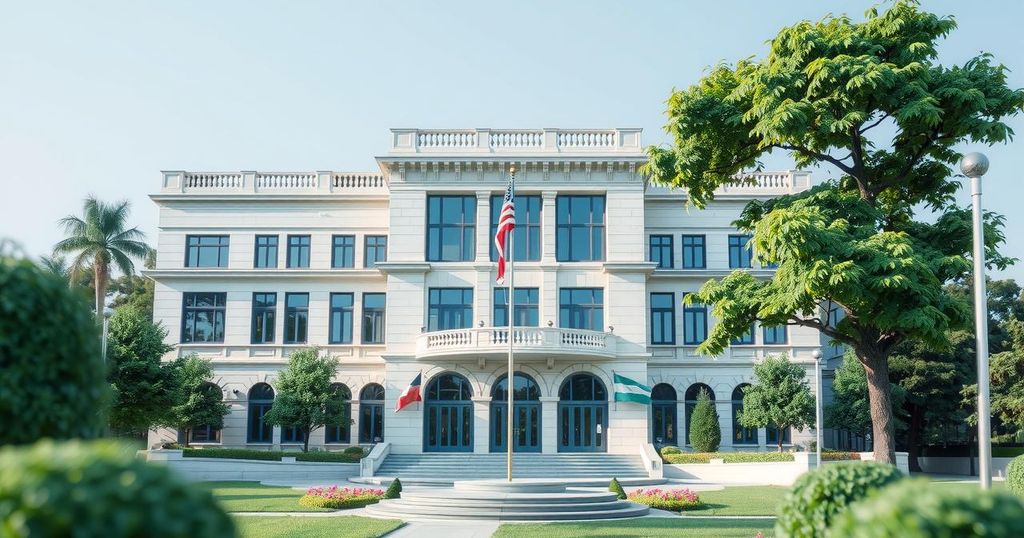Iran summoned British Ambassador Hugo Shorter in response to unsubstantiated allegations from UK officials about Iran’s interference in domestic affairs. The Iranian Foreign Ministry condemned these claims as biased, asserting they undermine diplomatic norms. Tehran called for a reconsideration of Britain’s approach and expressed the need for accountability if baseless accusations persist. Historical grievances also underpin this diplomatic tension.
In a significant diplomatic move, the Iranian Foreign Ministry summoned British Ambassador Hugo Shorter in response to continued and unfounded allegations made by senior British officials regarding Iran’s interference in the United Kingdom’s internal affairs. The meeting, chaired by Alireza Yousefi, Assistant to the Foreign Minister, involved a formal expression of Iran’s strong disapproval of these claims.
During the diplomatic exchange, Yousefi condemned the UK’s accusations as “biased and baseless,” asserting that such statements go against established international law and diplomatic norms. He warned that these allegations would exacerbate Iranian skepticism toward British policies, particularly in relation to Iran and the broader West Asian region.
Yousefi called for the UK government to reconsider its “unconstructive approach,” advocating for a shift towards more responsible and balanced diplomatic relations. Ambassador Shorter noted that he would convey Iran’s grievances to the UK government.
This summoning is particularly pertinent as Iran reacts against the UK’s recent security measures, which aim to scrutinize Tehran for alleged hostile activities within the UK. In this context, Iranian Foreign Ministry spokesman Esmaeil Baqaei criticized the UK for hypocrisy concerning its accusations.
In a post on X (formerly Twitter), Baqaei remarked on the absurdity of blaming Iran for actions that the UK is known to perpetrate, such as illegal interference in foreign nations. He also highlighted UK Prime Minister Keir Starmer’s failure to label Israel’s actions in Gaza as genocide and reminded of Britain’s involvement in the 1953 coup in Iran that forcibly removed its democratically elected Prime Minister.
Baqaei argued that the UK’s current diplomatic stance reflects a hostile mentality toward Iran, aimed at deflecting attention from its past actions, including its historical role in inactions labelled as genocide against Iranians. He asserted that Iran would no longer tolerate such behavior, stating that any government making unfounded accusations would face accountability.
These tensions follow UK Security Minister Dan Jarvis’s announcement to Parliament regarding a heightened foreign influence registration scheme targeting Iran’s government and security services. Tehran contends that these actions are driven by political motives and represent an extension of Britain’s enduring interference in Iranian affairs. The historical backdrop to this dispute includes the lasting legacy of Britain’s involvement in Iran’s Great Famine and Genocide from 1917 to 1919, which resulted in millions of Iranian deaths during a period of British occupation despite Iran’s neutrality in World War I.
The recent summoning of the British ambassador by Iran highlights escalating tensions stemming from perceived British aggression and baseless accusations regarding Iranian interference in UK affairs. Tehran has expressed strong objections to these claims, urging Britain to adopt a more balanced diplomatic stance and warning against future unsubstantiated allegations. This diplomatic conflict is further compounded by historical grievances, including Britain’s colonial past and its impact on Iran’s present-day politics.
Original Source: www.tehrantimes.com






